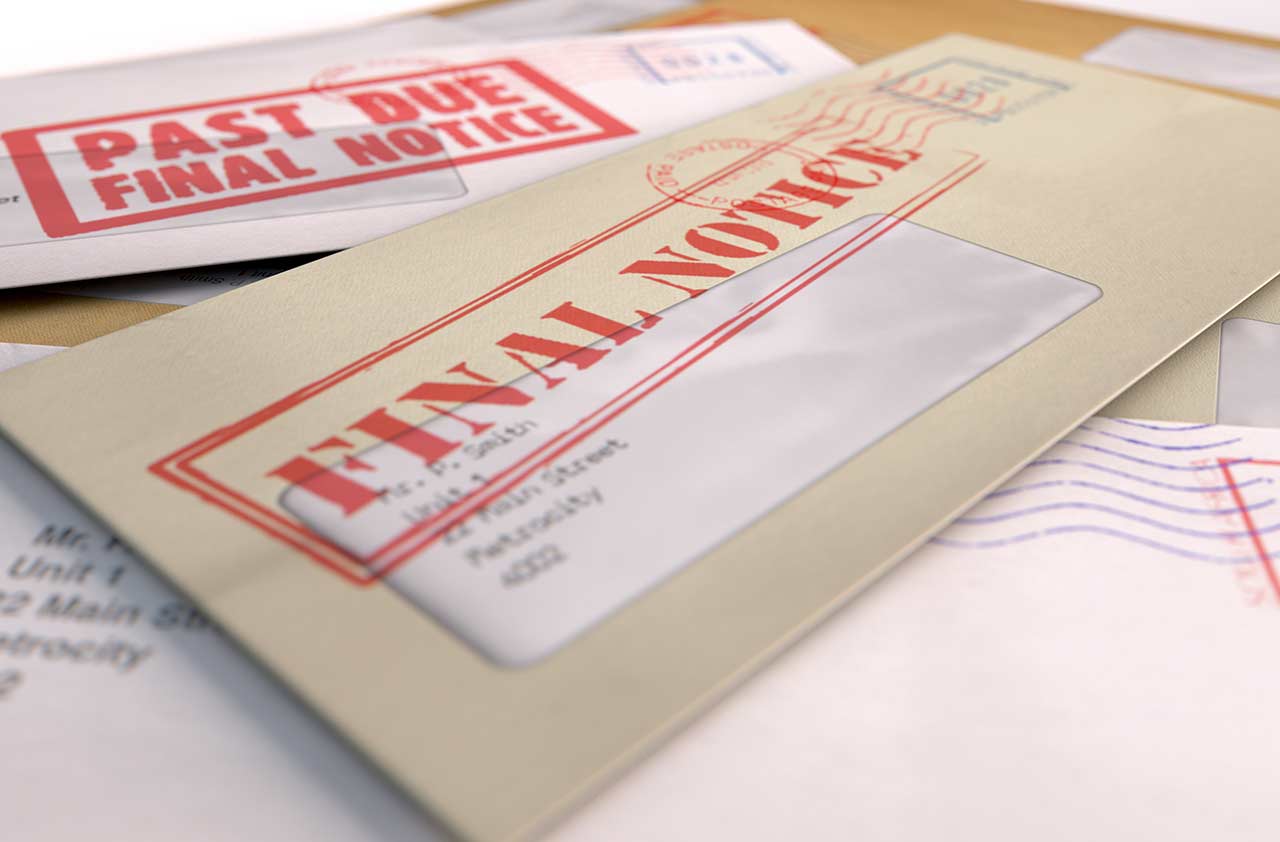It's Not Okay to Skip Out on a Mortgage
Default is ethical only for people who can no longer afford their home because of circumstances beyond their control, such as job loss.

Profit and prosper with the best of Kiplinger's advice on investing, taxes, retirement, personal finance and much more. Delivered daily. Enter your email in the box and click Sign Me Up.
You are now subscribed
Your newsletter sign-up was successful
Want to add more newsletters?

Delivered daily
Kiplinger Today
Profit and prosper with the best of Kiplinger's advice on investing, taxes, retirement, personal finance and much more delivered daily. Smart money moves start here.

Sent five days a week
Kiplinger A Step Ahead
Get practical help to make better financial decisions in your everyday life, from spending to savings on top deals.

Delivered daily
Kiplinger Closing Bell
Get today's biggest financial and investing headlines delivered to your inbox every day the U.S. stock market is open.

Sent twice a week
Kiplinger Adviser Intel
Financial pros across the country share best practices and fresh tactics to preserve and grow your wealth.

Delivered weekly
Kiplinger Tax Tips
Trim your federal and state tax bills with practical tax-planning and tax-cutting strategies.

Sent twice a week
Kiplinger Retirement Tips
Your twice-a-week guide to planning and enjoying a financially secure and richly rewarding retirement

Sent bimonthly.
Kiplinger Adviser Angle
Insights for advisers, wealth managers and other financial professionals.

Sent twice a week
Kiplinger Investing Weekly
Your twice-a-week roundup of promising stocks, funds, companies and industries you should consider, ones you should avoid, and why.

Sent weekly for six weeks
Kiplinger Invest for Retirement
Your step-by-step six-part series on how to invest for retirement, from devising a successful strategy to exactly which investments to choose.
I'm hearing that many home foreclosures are so-called strategic defaults. People who can afford to keep paying are repudiating their mortgage obligations because their property values have fallen, and they don't see them recovering for a long time. Homeowners figure that they can rent a similar house for a lot less than their current mortgage payment. Or they can use other capital they may have to take advantage of depressed prices to buy a similar house for less than their present mortgage balance. What do you think about this?
I'm old-fashioned about contractual obligations, and I think that homeowners (or investors) should continue honoring their mortgage contracts with all the resources at their disposal. Default is an ethical choice only for people who can no longer afford the monthly payment because of circumstances beyond their control, such as job loss or illness -- not high living (past or present) or a speculative hunch that prices would keep soaring. Sadly, millions of people are in the true-hardship category today.
Strategic defaulters are taking advantage of the fact that many mortgages are "nonrecourse loans," meaning that the loan is collateralized only by the property itself, not by any other assets the borrower owns. So if a borrower stops making payments, the lender has no recourse other than to seize the property; the borrower's remaining assets are usually untouchable.
From just $107.88 $24.99 for Kiplinger Personal Finance
Become a smarter, better informed investor. Subscribe from just $107.88 $24.99, plus get up to 4 Special Issues

Sign up for Kiplinger’s Free Newsletters
Profit and prosper with the best of expert advice on investing, taxes, retirement, personal finance and more - straight to your e-mail.
Profit and prosper with the best of expert advice - straight to your e-mail.
I have heard strategic defaulters argue that they have a higher moral obligation to maintain their family's financial security than honor a debt to a giant mortgage lender. I think this sort of moral relativism is a slippery slope.
On practical grounds, a strategic default could ruin your credit rating for a long time. That could make it very hard for you to rent your next home or, even worse, to get a new mortgage to buy another house at today's lower prices. That's not very strategic thinking. (For more on the financial fallout of a strategic default, see Walking Away From a Mortgage.)
Have a money-and-ethics question you'd like answered in this column? Write to Editor in Chief Knight Kiplinger at ethics@kiplinger.com.
Profit and prosper with the best of Kiplinger's advice on investing, taxes, retirement, personal finance and much more. Delivered daily. Enter your email in the box and click Sign Me Up.

Knight came to Kiplinger in 1983, after 13 years in daily newspaper journalism, the last six as Washington bureau chief of the Ottaway Newspapers division of Dow Jones. A frequent speaker before business audiences, he has appeared on NPR, CNN, Fox and CNBC, among other networks. Knight contributes to the weekly Kiplinger Letter.
-
 How Much It Costs to Host a Super Bowl Party in 2026
How Much It Costs to Host a Super Bowl Party in 2026Hosting a Super Bowl party in 2026 could cost you. Here's a breakdown of food, drink and entertainment costs — plus ways to save.
-
 3 Reasons to Use a 5-Year CD As You Approach Retirement
3 Reasons to Use a 5-Year CD As You Approach RetirementA five-year CD can help you reach other milestones as you approach retirement.
-
 Your Adult Kids Are Doing Fine. Is It Time To Spend Some of Their Inheritance?
Your Adult Kids Are Doing Fine. Is It Time To Spend Some of Their Inheritance?If your kids are successful, do they need an inheritance? Ask yourself these four questions before passing down another dollar.
-
 Should All Student Debt Be Forgiven?
Should All Student Debt Be Forgiven?student loans My favorite reform would be making the repayment of all student loans proportional to the borrower’s future earnings.
-
 Should Lenders Mail Unsolicited Checks to Potential Borrowers?
Should Lenders Mail Unsolicited Checks to Potential Borrowers?credit & debt When it comes to preying on weak credit risks, it looks like Wall Street is at it again.
-
 Do Adult Children Have an Obligation to Support Needy Parents?
Do Adult Children Have an Obligation to Support Needy Parents?savings Even if some siblings can afford to help more than others, no one should shirk the obligation to assist in some way -- financial or otherwise.
-
 How Can the Approval Process for New Drugs Be Speeded Up?
How Can the Approval Process for New Drugs Be Speeded Up?investing There are many reform proposals, including some from free-market think tanks.
-
 Should Ethics Determine Who You Do Business With?
Should Ethics Determine Who You Do Business With?Smart Buying Consumers seeking to do business only with ethical companies should ask these questions.
-
 Should Colleges Use Collection Agencies for Overdue Student Bills?
Should Colleges Use Collection Agencies for Overdue Student Bills?college Colleges have many potent options for getting students to square their accounts.
-
 Hold Soda Makers to Account for Health Woes?
Hold Soda Makers to Account for Health Woes?Business Costs & Regulation A strong case can be made that it’s unethical for companies to target the very customers who shouldn’t be heavy consumers of a given product.
-
 Ways to Protect Borrowers From Predatory Home Lending
Ways to Protect Borrowers From Predatory Home Lendingreal estate Land contracts drain low-income communities of resources.